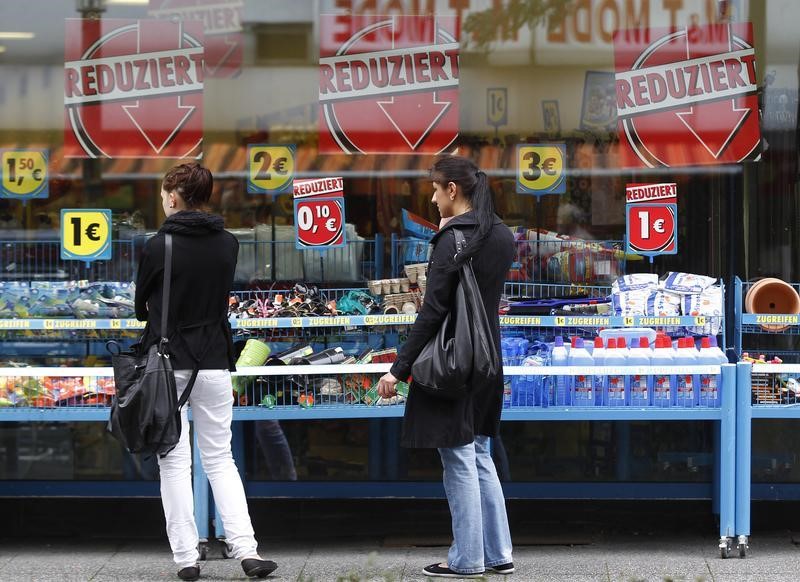This post was originally published on this site
https://i-invdn-com.akamaized.net/news/LYNXNPEC5S0KT_M.jpg
Investing.com – European stock markets weakened Wednesday, with positive economic data not being sufficient to offset investor worries following a heated first U.S. presidential debate.
At 3:55 AM ET (0755 GMT), the DAX in Germany traded 0.6% lower, the CAC 40 in France fell 0.6%, while the U.K.’s FTSE index fell 0.2%.
German retail sales rose much more than expected in August, climbing by 3.1% on the month after an upwardly revised drop of 0.2% in July, raising hopes that household spending in Europe’s largest economy will help the region recover in the third quarter. The country’s unemployment data also surprised to the upside, with the unemployment rate falling to 6.3% in September, compared to expectations that it would stay at 6.4%.
Britain’s economy also shrank by less than originally estimated in the second quarter, still a record 19.8% drop, but better than the initial estimate of a 20.4% fall in output. Additionally, U.K. house prices posted their biggest annual gain since 2016 in September.
Earlier Wednesday, Chinese PMI data showed that the world’s second-largest economy’s recovery continues to progress.
This positive news wasn’t able to overcome the caution that took hold of the markets after a contentious presidential debate in which Donald Trump again cast doubt on whether he would accept the election’s outcome.
In corporate news, Veolia (PA:VIE) stock rose 1.4% after the French waste and water giant raised its bid for most of Engie’s stake in Suez (PA:SEVI) making a final push to clinch a deal that would be a prelude to a full takeover. Suez shares rose 7%, while Engie stock rose 1.6%.
William Hill (LON:WMH) stock fell 0.5% after the board of the U.K. bookmaker said it had agreed to be acquired by Caesars (NASDAQ:CZR) Entertainment at a price of 272p/share, which valued it at 2.9 billion pounds ($3.72 billion).
Oil prices fell Wednesday, continuing the sharp losses of the previous session, on the back of worries about future consumption amid the Covid-19 pandemic and continued oversupply issues. Oil major Royal Dutch Shell (LON:RDSa) stock rose 1.2% after it said it would cut up to 9,000 more jobs as it wrestles with a new environment of low prices and potentially lower long-term demand.
Data from the American Petroleum Institute on Tuesday showed a draw of 831,000 barrels for last week, as against an expected build of 1.4 million barrels, but this wasn’t enough to push the market higher.
Investors now await crude inventory data from the Energy Information Administration later in the session.
U.S. crude futures traded 0.8% lower at $38.98 a barrel, while the international benchmark Brent contract fell 0.9% to $41.19. Both contracts closed more than 3% lower on Tuesday.
Elsewhere, gold futures fell 0.6% to $1,892/oz, while EUR/USD traded 0.1% lower at 1.1730 after ECB President Christine Lagarde, in a keynote speech, flagged the likelihood of a softer inflation target in future


